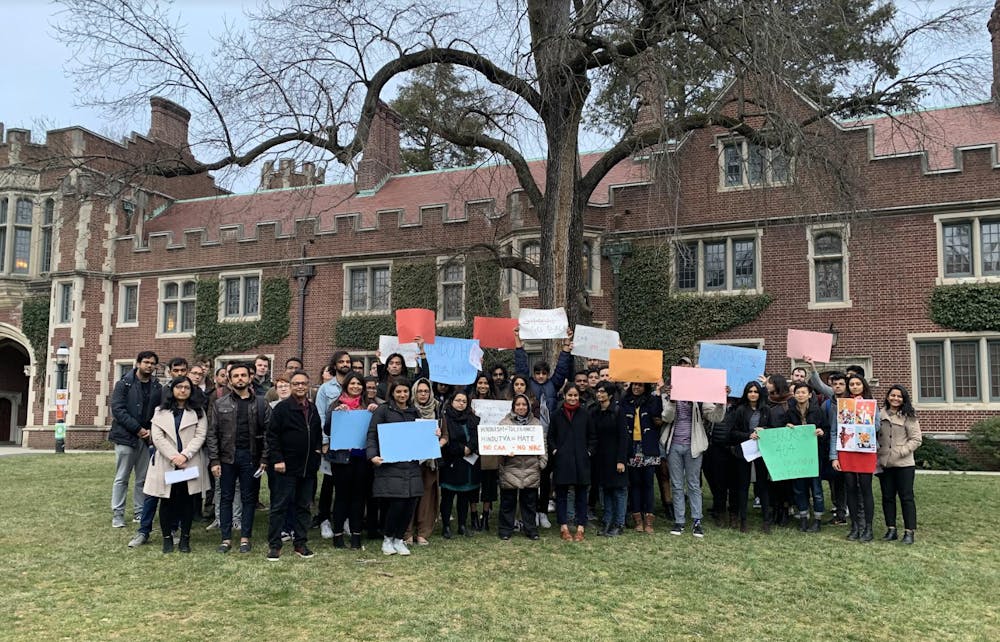On Monday, March 2, around 40 students, University faculty, and Princeton community members gathered on Frist Campus Center’s North Lawn to protest against continued violence in New Delhi, India.
Last December, Indian Prime Minister Narendra Modi enacted a new Citizenship Amendment Bill (CAB) offering citizenship to Hindus, Sikhs, Buddhists, Jains, Christians, and Parsis from India’s neighboring countries, specifically Pakistan, Bangladesh, and Afghanistan. However, this act specifically excludes Muslims, who comprise a majority of the nation’s non-Hindu population. Since the bill’s passage, violence has erupted in India. In the past week, the capital has been hit by riots against Muslim communities which have resulted in over 40 deaths and close to 300 people injured.
The government’s exclusion of Muslims is rooted in the nationalist beliefs of the Hindutva movement, explained Assistant Professor of History Divya Cherian in an address to the protesters.
“Hindutva is a political philosophy that excludes Muslims and Christians from the Indian nation. It does not translate simply to Hinduness — even though that is a semantic slide that its proponents like to encourage,” Cherian said.
Along with Cherian, Dayton-Stockton Professor of History and Acting Director of the Program in South Asian Studies Gyan Prakash and Emma Thompson GS also gave speeches. Members of the South Asian Progressive Alliance provided a historical context and urged the Princeton community to stay engaged with the matter.
Speakers reiterated that their protest was in no way one against Hinduism. On the contrary, they said that they were trying to defend the principles of inclusivity, equality, and democracy upon which the religion is founded.
They criticized Hindutva and its targeting of Muslims, claiming that it undermines Hinduism’s most fundamental principles of equal citizenship and nondiscrimination.
“This is a fight for all those who stand for pluralism, democracy, […] and that Muslim lives matter,” said Cherian in her address.

Prakash took the opportunity to further discuss the Hindutva violence and its relation to Indian democracy. He described the violence of Hindutva as an “attack on civic nationalism” and “a diabolical effort to undermine Indian democracy.”
One graduate student noted that the recent events have important implications for not only South Asians but also Princeton community members and American citizens at large.
On a closing note, Thompson stood up to discuss these implications and measures that can be taken to continue the momentum from the campus protest. They urged people to donate to relief efforts, educate friends and family, and contact members of Congress to pressure Trump into pushing back against Modi.
“Justice delayed is justice denied,” said Kamya Yadav ’21, another member of the South Asian Progressive Alliance.

Protesters dispersed at around 5 p.m., chanting, “the people, united, will always be victorious.”








